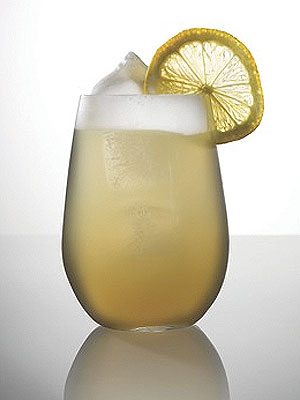CARACAS (Reuters) - Venezuelan Vice President Nicolas Maduro would win a presidential vote should his boss Hugo Chavez's cancer force him out, according to the first survey this year on such a scenario in the South American OPEC nation.
Local pollster Hinterlaces gave Maduro 50 percent of potential votes, compared to 36 percent for opposition leader Henrique Capriles.
Chavez made a surprise return to Venezuela on Monday, more than two months after cancer surgery in Cuba, to continue treatment at home for the disease that is jeopardizing his 14-year socialist rule.
He has named Maduro, 50, a former bus driver and union activist, as his preferred successor.
Capriles, 40, a center-left state governor who lost to Chavez in a presidential vote last year, likely would run again.
Chavez still has not spoken in public since his December 11 operation in Cuba. Venezuelans were debating on Tuesday the various possible scenarios after his homecoming - from full recovery to resignation or even death from the cancer.
There was widespread expectation Chavez would soon be formally sworn in for his new six-year term at the Caracas military hospital where officials said he was staying. The January 10 ceremony was postponed while he was in Cuba.
"The president's timeline is strictly linked to his medical evolution and recovery," said Rodrigo Cabezas, a senior member of Chavez's ruling Socialist Party who, like other officials, would not comment on when he might be sworn in.
CAPRILES ANGRY
Should Chavez be forced out, Venezuela's constitution stipulates an election must be held within 30 days, giving Capriles and the opposition Democratic Unity coalition another chance to end the socialists' lengthy grip on power.
Capriles, who crossed swords with Hinterlaces at various points during the presidential election, again accused its director, Oscar Schemel, of bias in the latest survey.
"That man is not a pollster, he's on the government's payroll," Capriles told local TV.
"He said in December I would lose the Miranda governorship," he added, referring to his defeat of government heavyweight Elias Jaua, now foreign minister, in that local race.
Opinion surveys are notoriously controversial and divergent in Venezuela, with both sides routinely accusing pollsters of being in the pocket of the other. But Hinterlaces successfully forecast Chavez's win with 55 percent of the vote in October.
Its latest poll was of 1,230 people between January 30-February 9.
Polls last year showed Capriles - an energetic basketball-playing lawyer who admires Brazil's centrist mix of free-market economics with strong social welfare policies - as more popular than any of Chavez's senior allies.
But Chavez's personal blessing of Maduro, on the eve of his last cancer surgery, has transformed his status and made him the heir apparent for many of the president's supporters.
As de facto leader since mid-December, Maduro also has built up a stronger public profile, copying the president's techniques of endless live TV appearances, especially to inaugurate new public works or promote popular policies like subsidized food.
He lacks Chavez's charisma, however, and opponents have slammed him as a "poor imitation" and incompetent.
EMOTION
Local analyst Luis Vicente Leon said that should Chavez die, Maduro would benefit from the emotion unleashed among his millions of passionate supporters in Venezuela.
"The funeral wake for Chavez would merge into the election campaign," he told a local newspaper, noting how Argentine President Cristina Fernandez's popularity surged when her husband and predecessor Nestor Kirchner died in 2010.
Maduro already has implemented an unpopular devaluation of the local currency and said more economic measures are coming this week in what local economists view as austerity measures after blowout spending prior to last year's election.
In Caracas, the streets were quieter after tumultuous celebrations of Chavez's homecoming by supporters on Monday. A few journalists stood outside the military hospital.
Prayer vigils were planned in various parts of Venezuela.
"We hope Chavez will stay governing because he is a strong man," supporter Cristina Salcedo, 50, said in Caracas.
Student demonstrators who had chained themselves near the Cuban Embassy last week, demanding more information on Chavez's condition, called off their protest after his return.
Until photos were published of him on Friday, the president had not been seen by the public since his six-hour December 11 operation, the fourth since cancer was detected in mid-2011.
The government has said Chavez is breathing through a tracheal tube and struggling to speak.
Bolivian President Evo Morales arrived in Caracas on Tuesday in the hope of visiting his friend and fellow leftist.
(Additional reporting by Deisy Buitrago, Mario Naranjo, Girish Gupta in Caracas, Carlos Quiroga in La Paz; Editing by Bill Trott)










